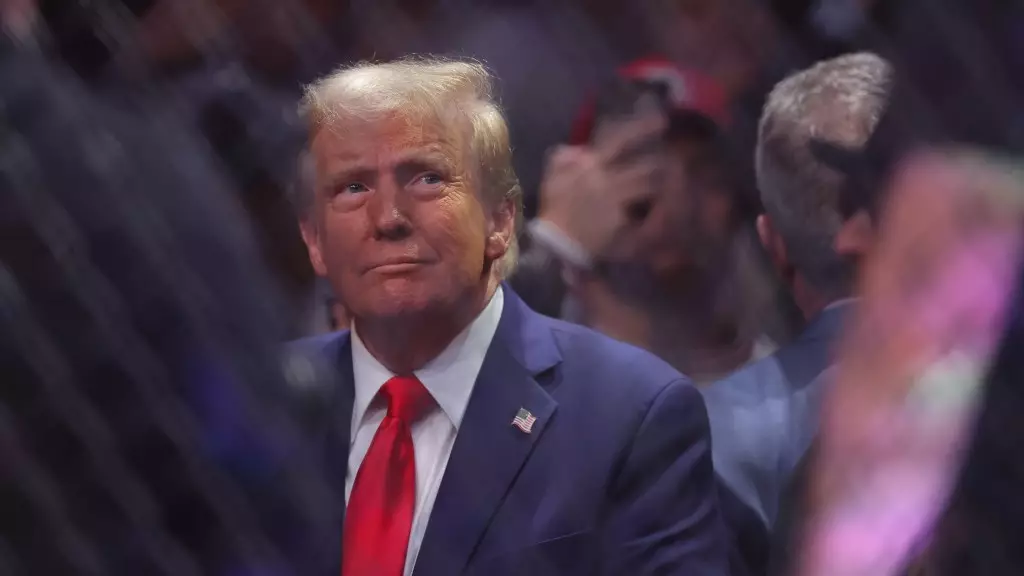The world of mixed martial arts (MMA) has consistently blurred the lines between athletic competition and broader societal contexts. Michael Chandler’s recent UFC fight at Madison Square Garden exemplified this phenomenon. Chandler, accompanied by a significant audience, including former President Donald Trump, drew attention not only for his athletic prowess but also for his proximity to prominent political figures. Such an audience is indicative of the sports industry’s ongoing relationship with celebrity culture and politics, which often intertwine in ways that affect public perception and engagement.
Chandler’s co-main event bout against Charles Oliveira at UFC 309 was more than just a contest for victory; it was a clash steeped in expectation, considering Chandler’s previous hiatus since November 2022. After a series of potential high-stakes matchups, including a much-discussed fight with Conor McGregor that did not materialize, the rematch against Oliveira became critical for Chandler’s career trajectory. Despite his loss by unanimous decision on this occasion, the significance of the fight transcended the result. In the competitive world of the UFC, where wins and losses can dictate an athlete’s status, Chandler’s determination to return under high-pressure circumstances speaks volumes about his character and resilience.
What further complicated the narrative surrounding this fight was Chandler’s interaction with Trump post-match. Their brief exchange—Chandler recalling Trump’s words of encouragement—highlights the way in which sports figures often seek validation from public or political figures. It opens a window into the psychology of athletes who, despite their failures, find solace through recognition and respect from influential personalities. Chandler’s comment about Trump—“Thank you for saving our country”—reflects the complex dynamics of public discourse surrounding sports and politics, illustrating how athletes can unintentionally become messengers of political sentiment.
Chandler’s aspirations for his next move, often hinted at a high-stake fight with McGregor in 2025, indicates a longing for redemption and a desire to reclaim his standing in the UFC. However, with a record of just one win in his last five matches, the road to such a fight may not be straightforward. The implications of high-profile matches extend beyond individual fighters; they shape the narratives surrounding the sport itself and influence fan engagement. The hope for a McGregor matchup could very well be a means for Chandler to regain relevance in an intensely competitive arena.
The spectacle surrounding UFC events has become a melting pot of entertainment, politics, and personal narratives. Chandler’s experience at UFC 309 encapsulates how critical moments in sports can often invoke discussions about identity, personal values, and societal trends. His journey serves to remind us that while the sports arena may be a battleground for physical prowess, it is also a stage where broader societal themes unfold—revealing the intricate dance between sporting excellence and the world beyond the cage. As Chandler plots his comeback, it will be fascinating to observe how he navigates these intersections in his quest for future triumphs.

